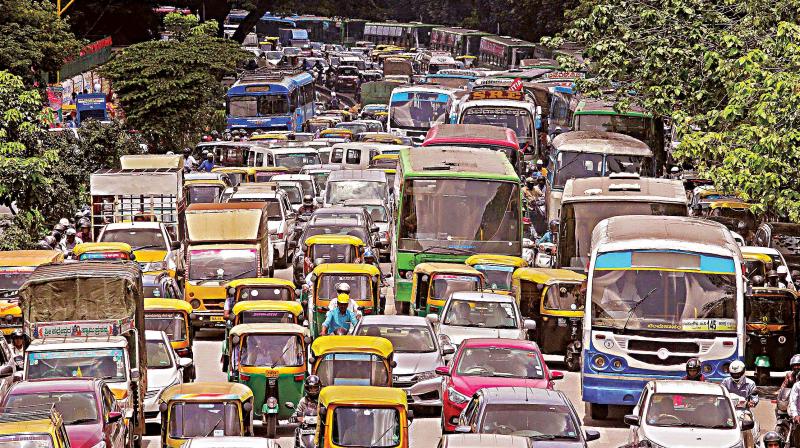KBR flyovers may ease traffic, check pollution

HYDERABAD: The recent report by EPTRI (Environment Protection and Training Research Institute) highlighting the impact assessment of multilevel flyovers in six junctions of the national park, Kasu Brahmananda Reddy (KBR), paints a hopeful picture of air pollution with reduced carbon dioxide levels that surround the park, if the flyover project is completed.
The study of pollution and traffic congestion was conducted by EPTRI after GHMC was asked to submit a report to the NGT about the environmental impact of the project.
Although the project has been designed to ease traffic problems, the current pollution levels have exceeded the standard limits of particulate matter, without the added vehicular movement that will begin after the construction of the flyovers.
However the report concluded that vehicular traffic will increase upto two folds by 2035 but there will be a decrease in CO2 levels. The concentration of PM10 was as high as 149.5 against the permissible limit of 100.
P. Veeranna, senior scientist at PCB says, “As per the report, idling time will be reduced by the flyovers and therefore even felling of trees which will occur for the flyover will be negligible compared to the reduction of emissions.”
PCB officials have stated that cars consume more fuel and pollute more in traffic congestion than if they move smoothly. “The flyovers will be helpful in bringing down harmful emissions in a particular areas that are always exceeding pollution limits. However we still urge citizens to use public transport.”
Noise pollution levels were found to be high due to heavy traffic flow and commercial complexes outlining the park. With a few lanes recording nearly 128.1 A weighted decibels, the standard limit is crossed by more than a 100 decibels. “Certain areas of KBR have more noise pollution than others such as Cancer hospital junction, Jubilee Hills Check post and others. Multi level flyovers will ease traffic but the noise pollution of vehicular movement will add to the existing levels,” says a PCB official.

